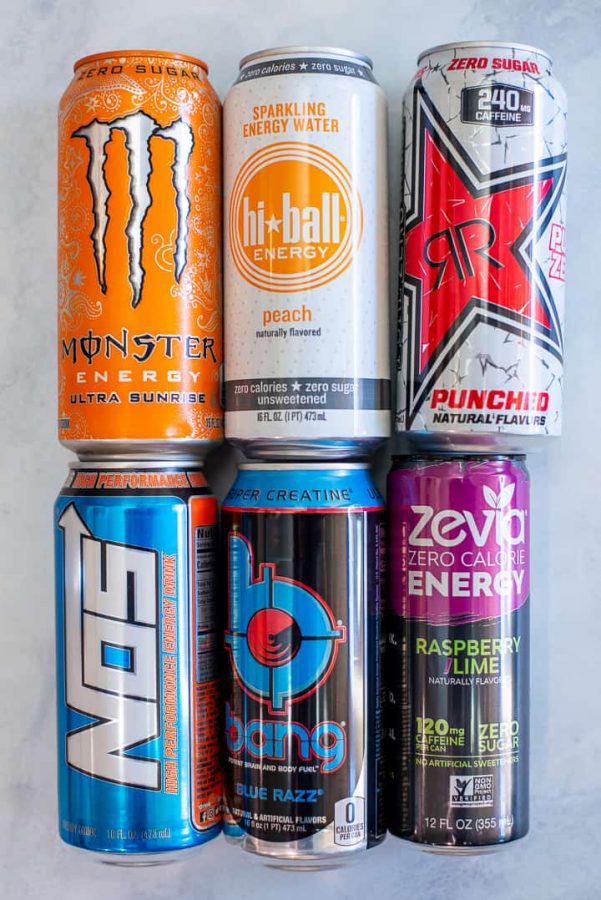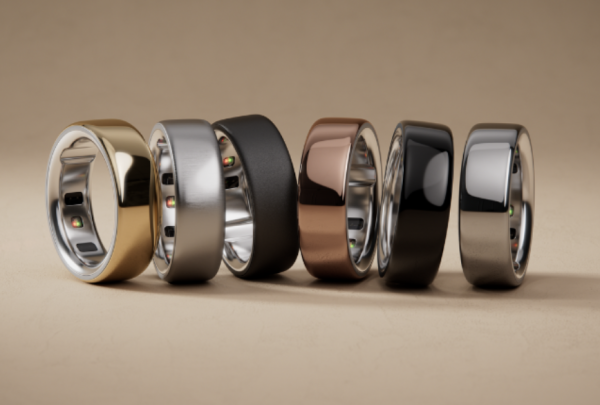Energy Drinks: What Are We Drinking?
Feeling exhausted at school? Need a little more energy to push through your day ahead? Nothing a good old energy drink can’t fix, right!? Advertised to cure your exhaustion and offer hours of brain/body stimulation, energy drinks like Red Bull, 5-Hour Energy, Rockstar, and Monster are potent blends of synthetic caffeine, vitamins, and chemicals that have serious health effects that are not brought up enough in today’s world.
Based on their high demand and popularity among the majority of teens, I couldn’t help but question: What is really in these mysterious potions that energize us so quickly? While each different energy drink contains a wide array of ingredients, let’s talk about the astronomical amounts of synthetic caffeine in just one drink. What is Synthetic caffeine you may be wondering? Well thankfully, an author for Food Insite states that, “Synthetic caffeine is produced in laboratories and manufactured in factories, which provides a much more potent caffeine {than natural caffeine found in the plants}.” Additionally, it can also be exposed to a number of detrimental chemicals, including methylene chloride, ethyl acetate and carbon dioxide.
Now that we’ve learned a little bit about caffeine, let’s talk about the servings found in just one energy drink. Ranging from 6 to 242 milligrams of caffeine per serving, many energy drinks contain even more than one serving in a can. For instance, a 12 ounce can of Monster contains 122 mg of caffeine, and the same size Red Bull has about 102 mgs. To put that into perspective, the CDC claims that teens ages 12-18 should cap their caffeine intake at 100 mgs per day. While that may be recommended, many people don’t bother taking that into account, due to their lack of knowledge involving the catastrophic consequences of caffeine; Some lower serving effects may include insomnia, increased heart rate, shakiness, and dizziness, while higher servings may cause abdominal pain, seizures, increased blood acid levels, irregular or fast heartbeat, and reduced blood flow to the heart, which could be detrimental to one’s life. Overall, caffeine isn’t proven to be necessarily unhealthy. But like anything, too much of it can be detrimental to your health. With that being said, the recommended amount of caffeine should be taken seriously when you decide to ingest something as potentially harmful to your body as what’s in these drinks.
Adding on, Danielle Rath, Author and GEG Research and Consulting Home of Caffeine Scientist states, “While many of the ingredients found in energy drinks are natural and may sound like a healthful choice, including them in your lifestyle comes with some risk. In fact, over a five-year span, the number of energy drink-related visits to emergency departments doubled, climbing from 10,068 to 20,783 cases {written in 2021}.”
Not only are the caffeine levels high, but energy drinks also withhold numerous other questionable ingredients. Ever heard of taurine, ginseng, glucuronolactone, guarna, yohimbe or carnitine? Me neither. Many of these ingredients include stimulants that hide the fact that these ingredients combined have a much greater stimulating effect than you would believe.
Highlighting a few of the most questionable, first we have glucuronolactone. As I researched about this chemical, my findings were disputable. Many doctors have said that conclusions on whether this compound is harmful or beneficial, could not be made because of the lack of testing done on this substance. Additionally, while ingredients in energy drinks are proven to temporarily enhance concentration and energy metabolism, they can cause adverse health effects when all combined together, like rapid heart rate, heart arrhythmias, increased blood pressure, headaches, and anxiety which have led to increased hospital trips over the past year. Mohamad Moussa, a professor in the University of Toledo College of Medicine and Life Science stated that,”these drinks are generally stimulants and can put a demand on the heart”.
Continuing, another notable mention is, of course, the total sugars in energy drinks. Packed with an average of 27 to 31 grams of added sugars per 8 ounce, the American Heart Association recommends a maximum of 25 grams (100 cals) of added sugar per day for women, and about 36 grams (150 cals) for men. Studies have proven that extensive amounts of sugar can cause inflammation in the body, which Lauren Popeck, a registered dietitian with Orlando Health, says has been connected to numerous chronic conditions including “cancer, diabetes, and heart disease”.
Additionally, Popeck states that “a small 2016 study in healthy individuals revealed that after consuming a 32 oz energy drink for three days in a row, cardiac QT interval increased, which is associated with sudden death. Greater risk occurs when consuming multiple energy drinks in a short period of time.” Well, Rachael Troughton, author for Medical News Today, claims that “QT prolongation occurs when the heart muscle takes a comparatively longer time to contract and relax than usual. QT prolongation may increase the risk of developing abnormal heart rhythms and may lead to sudden cardiac arrest”.
With that being said, energy drink consumption should be taken into more consideration. So, when you are feeling like the easiest option is to stop by your local gas station and grab a quick Red Bull for a quick energy fuel, just remember that there are other healthier options.

Hello all, I’m Lily Cierpial and I’m a junior this year. This is my second year on the journalism staff, and I'm so excited to be one of the two copy...







